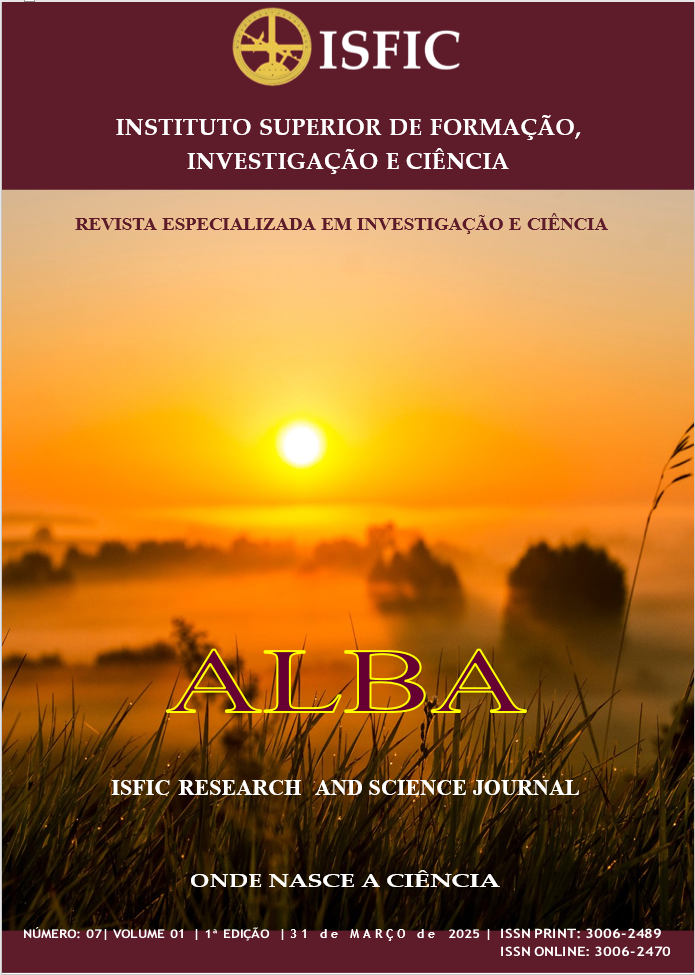Financial losses due to the lack of taxation of the properties of the Youth Project in the Municipality of Uíge – Catapa
Keywords:
Tax, Real Estate, collection, Collection, revenueAbstract
Angola has been experiencing an unprecedented financial crisis since 2014, which forces the State to stop depending exclusively on its main source of revenue collection (oil) for this purpose, it has been seeking to increasingly diversify its sources and this task is made difficult by purely administrative constraints. In this work, we sought to investigate the impacts caused by the omission and regularization of property in the country (with special emphasis on the youth project in the province of Uíge), given that they are essential conditions to operationalize one of the main sources of revenue collection for the State through taxes (IPU). Therefore, the objective is to demonstrate how the omission and lack of legal regularization of the properties negatively influence the operationalization of this source of revenue for the State and consequently in the life of the citizen, because without legal regularity it is not possible to mortgage the property for the purpose of granting a credit, for example. It is worth mentioning that the results showed that only in relation to the omission of the properties that make up the youth project in the Province of Uíge (Angola), which is composed of 72 residences, the State fails to collect annually the equivalent of 360,000.00 Kwanzas, that of the seven (7) years of existence of the project, the Municipality would have collected a total of 2,500,000.00 Kwanzas with a strong impact on the lives of the citizens, since the IPU is a source of municipal revenue. Therefore, with this study, the causes and solutions for the government to assertively operationalize this source of municipal revenue are presented. Therefore, in order to achieve the objectives, we resorted to the type of bibliographic, descriptive research and the case study, while the approach is quantitative.
Downloads
References
Carlos, R. C. (2015). A crise económica em Angola- Causas e Efeitos.
do Santos, C. P. (2021). Enquadramento sobre o Sistema Tributário Angolano.
Fernandes, R. (s/d). A Tributação Angolana – o novo Imposto Predial Urbano, Revista RFF, n.º 8/15.
Nelson, T. M. (2022). A Reforma fiscal e tributária em angola: sua importância na diversificação e desenvolvimento da economia angolana, Artigo JuLaw n.º 041/2022 (905 -924).
Ngola, M. (2019). Regularização Jurídica da Propriedade Imobiliária em Angola, WA editora.
Vula, O. D.; & Joaquim, S. P. (2020). A ineficácia do imposto predial no ordenamento jurídico angolano, Artigo JuLaw.
Legislação
Lei n.º 20/20, de 9 de junho, (Lei que aprova o Código do Imposto Predial)
Decreto presidencial n.º 191/21, de 10 de agosto (Que aprova as regras sobre a inscrição, avaliação e reavaliação de imóveis).
Decreto Presidencial n.º 169/12 - Regime de Regularização Jurídica dos Imóveis Destinados À Habitação, Comércio e Mistos, Públicos e Privados
Internet
https://www.jornaldeangola.ao/ao/noticias/pais-tem-80-por-cento-de-imoveis-com-a-situacao-juridica-irregular/, acessado aos 06 de maio de 2024.
https://www.portaldeangola.com/valor-a-importancia-do-imposto/, acessado aos 03 de maio 2024.







